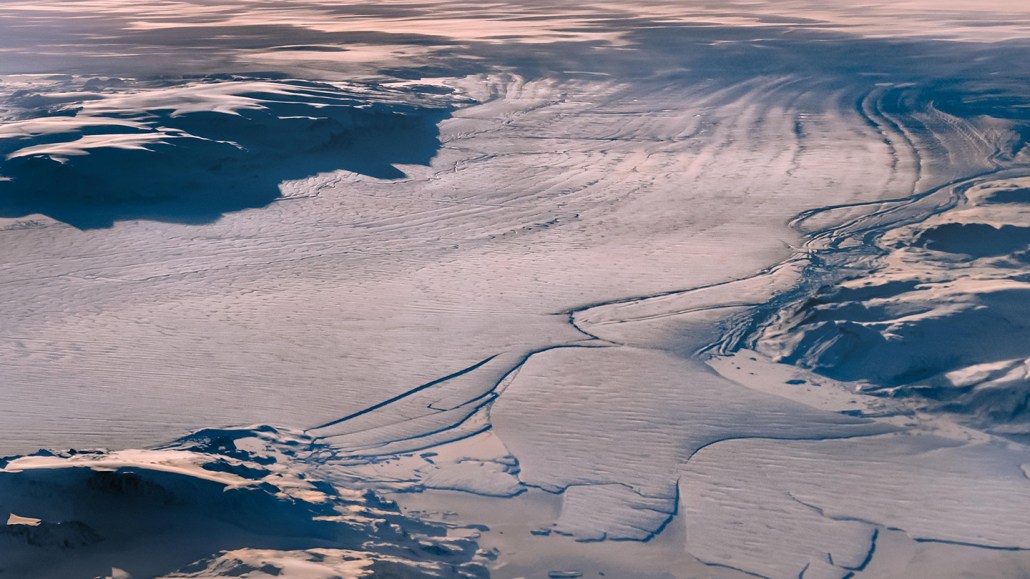Questions for ‘Greenland’s inland ice is melting far faster than anyone thought’

The Nioghalvfjerdsfjord glacier (pictured) is one outlet of the roughly 600-kilometer-long (370-mile-long) Northeast Greenland Ice Stream, which drains ice from the country’s massive ice sheet into the sea.
Guardian_v2/Alamy Stock Photo